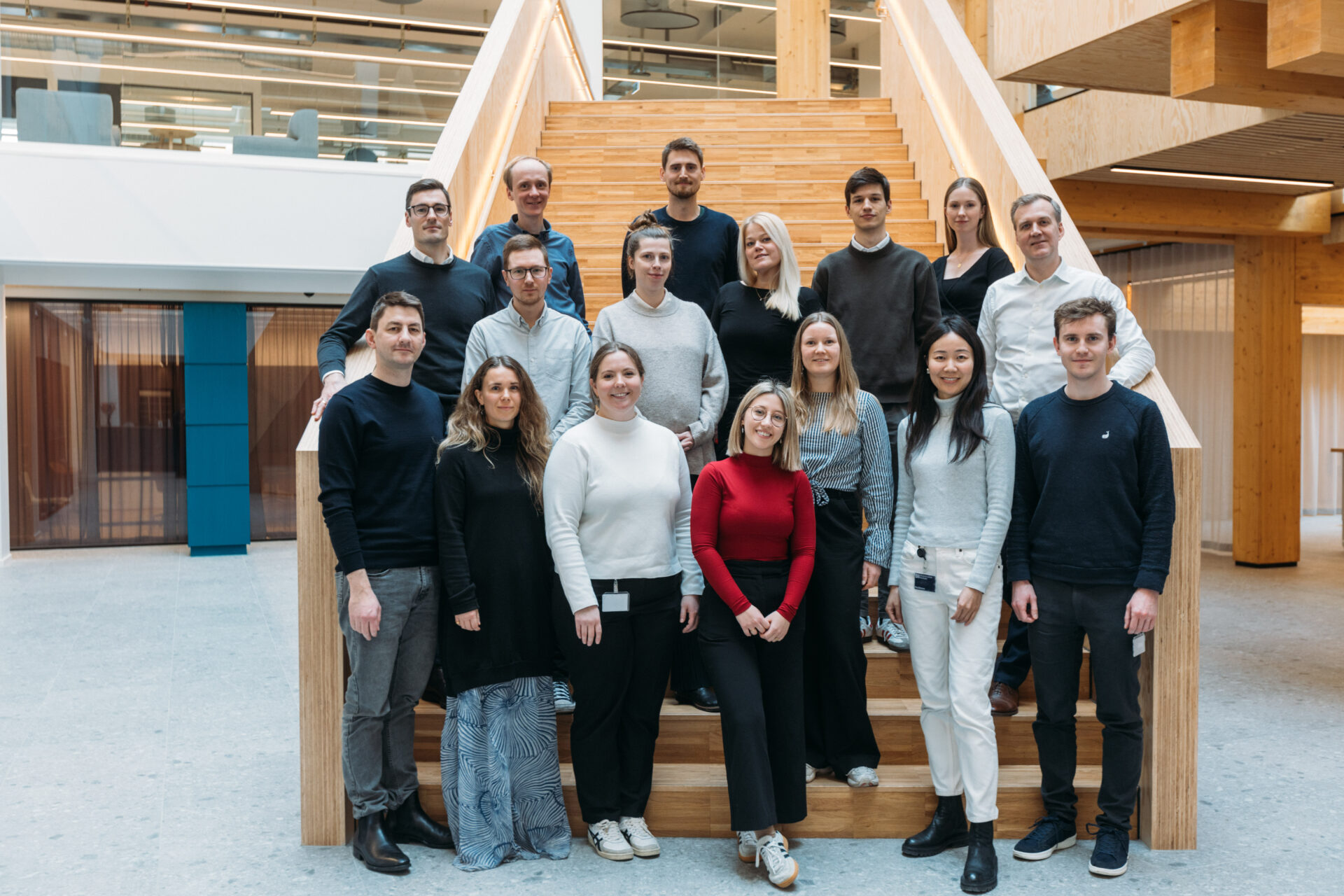- Enduro Genetics—a Danish startup on a mission to slash the cost of biomanufacturing by “addicting” cells to high production—has raised €12 million ($12.4 million) in Series A funding from Supernova Invest, NOON Ventures, and Sandwater.
- The round takes Enduro’s cumulative funding to €18 million ($18.7 million) including grants from the BioInnovation Institute and the European Innovation Council accelerator grant, and will be used to expand its tech platform and accelerate commercialization.
- “Enduro’s cell reprogramming technology is solving major challenges in the bioproduction space and large organizations are already starting to reap the benefits,” says NOON Ventures general partner Theis Malmborg. “We believe the team will have an outsized impact on the future of biomanufacturing.”
‘It sounds almost too good to be true’
Spun out of the Technical University of Denmark by Dr. Peter Rugbjerg and Dr. Christian Munck, Enduro Genetics addresses a fundamental problem in biomanufacturing—declining production at scale and poor yields—with technology “that sounds almost too good to be true” when you first come across it, says CEO Christian Munch.
In any bioreactor, over time, only a certain percentage of cells actually produce what they have been engineered to express, he says. The rest are essentially freeloaders, consuming valuable feedstocks without making anything useful, which can make the unit economics of the whole enterprise challenging.
“Sometimes only 15-20% of the cells are responsible for producing your target product. And after 60-80 generations, the cells may completely lose the ability to produce,” notes Munch, a former Novonesis executive very familiar with the economics of industrial fermentation. “There are various factors that impact declining production at scale, but for each generation, there are mutants that say, if ‘I stop making target protein X, I can grow faster,’ and they will ultimately take over the bioreactor.”
Which is no surprise if you think about it, says Munch. Microbial cells do not naturally produce dairy proteins, vaccines, human milk oligosaccharides or other bioproducts that cells have been genetically engineered to express, so there’s “no evolutionary competitive advantage” to making them.
He adds: “And even if all your cells are producing the target, some are really high producers and others are not, so you can still get a really inefficient process.”
More productive bioproduction over a longer period
In a nutshell, Enduro “effectively tricks cells into thinking that they have to produce the target substance in order to survive,” by linking the expression of essential genes, which are critical for the survival of an organism, and high-production of the target substance in a cell, explains Munch.
“Our solution [‘Enduro Sense’] is a genetic biosensor that couples with essential genes in the cell and that means that only cells that are high-producers of the target substance can grow or proliferate. The essential genes are upregulated when the cell produces the target substance and downregulated when they don’t.”
The net result is that high productive cells dominate the bioreactor, enabling firms to sustain bioproduction over longer time scales, claims Munch, who says Enduro’s genetic biosensors have been tested in bacteria, fungi, and yeast.
“The technology is organism and product agnostic. The larger the burden the production poses to the organism, the better our technology works.”
‘Clients can instantly capture a cost saving in their existing process’
By making existing biomanufacturing capacity more productive, clients can potentially avoid capex they had planned to spend on additional or larger bioreactors, he claims.
“We typically see >30% titer improvements of optimized established processes and fermentation time increased five-fold, enabling fill and draw / extended fed-batch types of fermentation, as well as continuous production.”
He adds: “Clients can instantly capture a cost saving in their existing process. Output is increased without changing the input, as the technology works by preventing low or non-producing cells. The space, feedstock and nutrients that go into building cell biomass and maintaining the metabolism of non-producing cells is diverted into producing the product you want to produce.”

Implementation
Implementing Enduro Sense into a production strain is done one time at the master cell bank level and requires no changes to the media (no antibiotics, no additives) or production process, he says. “We don’t introduce any foreign DNA and we don’t tamper with the production pathway.”
Some clients are happy to send Enduro their strain, “and we do everything in-house,” says Munch. For others concerned about IP, he says, “We can send the constructs, the sequences that they need to implement this as a data file, so they can synthesize the DNA and do the transformation themselves with our guidance, and we can help them interpret the results. We’ve done implementations with clients where their strain never left their premises.”
Commercial progress
Over the last two years Enduro has “moved from demo project with smaller startups to working with a more than a handful of large established clients across biosolutions and pharma, and in all cases we are working and implementing the technology in their commercial strains and processes,” says Munch.
“We are at different stages with the clients and expect to deliver several implementations for commercial use during 2025.”
As for the business model, he says: “Clients pay a technology access fee for the use of our technology in their strain. The clients can themselves implement the genetic plug-in or we can do it as a fee-for-service in our labs in Copenhagen. Finally, there is a milestone payment and royalty when the clients use our technology for commercial production.”
Read the orginal article: https://agfundernews.com/enduro-genetics-raises-12m-series-a-to-turbocharge-biomanufacturing


